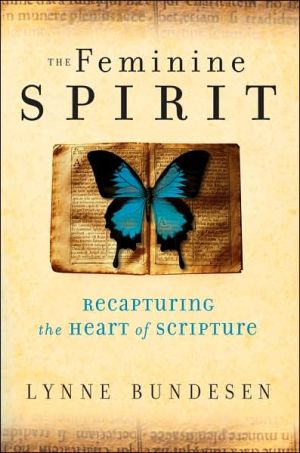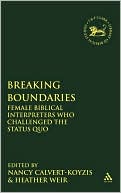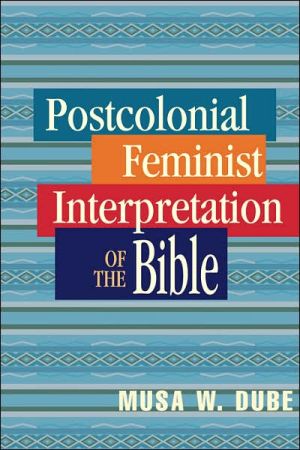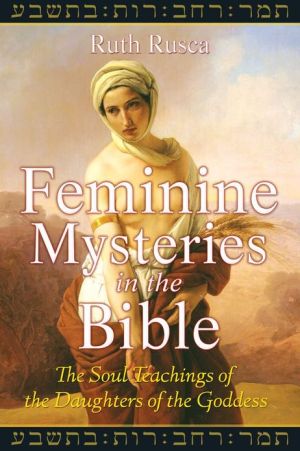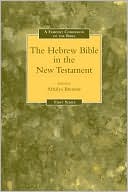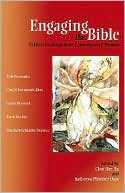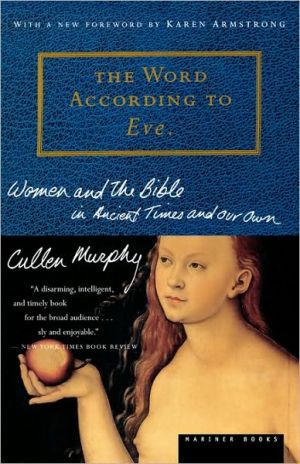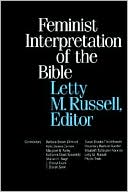Feminine Spirit: Recapturing the Heart of Scripture
About the Author:\ Lynne Bundesen is a former faculty member at Boston Theological Institute
Search in google:
Using a variety of analytical and descriptive tools, this nondenominational, innovative, and solid approach to the Bible goes deeply into biblical text to uncover new insights about who God is. It provides a fresh and insightful way for women to read the Bible outside the patriarchal framework that has predominated, going beyond stereotypes and male-centered traditional teachings to illuminate how women can better relate both to the Bible and to God. Publishers Weekly The traditional narrative of the male-dominated Bible is turned on its head in this new understanding offered by Bundesen, a former syndicated columnist and author of So the Woman Went Her Way. She goes back to the original Hebrew for a feminine interpretation of "ruach Elohim" (the Spirit of God), also referring to the King James Version of the Bible as the translation that "has led to confusion about the nature of the biblical God." Her understanding of God as "the Breasted One" opens the door to different interpretations of the roles of biblical women. "What in the present culture leads us to think biblical women are veiled, isolated, non-entities in a desert landscape, trailing behind husbands who are worshipping a vengeful male God?" she asks. The stories of Sarah, Rebekah, Abigail, Ruth, Esther, Mary and others are seen in a new light, as are Old Testament teachings and New Testament writers such as Paul. This is not a new translation or commentary, nor is it a breezy read for women looking for light fare. Bundesen's knowledge of the Bible is clear throughout, as is her agenda: to offer a new way to read the Bible with women in the limelight. (Mar. 16) Copyright 2006 Reed Business Information.
Note to the Reader vStarting the Journey: How to Begin 1In the Beginning 11The Seed and the Serpent 20The Breasted One 32A Gathering of Women 50I Am That I Am 67Rough Places, Plain Places 78The Woman Alone 90Psalms 106Kings, Queens, Widows, Prophets 112The Voice and Job 127Crying in the Wilderness 133The Eyewitnesses 144A Few Simple Rules 160Who Tells the Story? 168Spreading the Word 177The Spirit and the Bride 188Bibliography 197The Author 201
\ Publishers WeeklyThe traditional narrative of the male-dominated Bible is turned on its head in this new understanding offered by Bundesen, a former syndicated columnist and author of So the Woman Went Her Way. She goes back to the original Hebrew for a feminine interpretation of "ruach Elohim" (the Spirit of God), also referring to the King James Version of the Bible as the translation that "has led to confusion about the nature of the biblical God." Her understanding of God as "the Breasted One" opens the door to different interpretations of the roles of biblical women. "What in the present culture leads us to think biblical women are veiled, isolated, non-entities in a desert landscape, trailing behind husbands who are worshipping a vengeful male God?" she asks. The stories of Sarah, Rebekah, Abigail, Ruth, Esther, Mary and others are seen in a new light, as are Old Testament teachings and New Testament writers such as Paul. This is not a new translation or commentary, nor is it a breezy read for women looking for light fare. Bundesen's knowledge of the Bible is clear throughout, as is her agenda: to offer a new way to read the Bible with women in the limelight. (Mar. 16) Copyright 2006 Reed Business Information.\ \ \ \ \ Library JournalBundesen (So the Woman Went Her Way) claims her book "will help you read the Bible for yourself and help you discover the female aspect of God, the Creator, God the Mother that already exists in the Book." This is not a deep scholarly or historical analysis but a generalized, nearly book-by-book perspective heavy on elucidating "the female nature of God." Such an approach has already been taken in other fairly well-known works, some scholarly, some more popular-e.g., Mary Daly's controversial Beyond God the Father; Rosemary Radford Ruether's Sexism and God-Talk; Alice Ogden Bellis's Helpmates, Harlots, and Heroes: and Tikva Frymer-Kensky's Reading the Women of the Bible. But how well Bundesen accomplishes her aim is debatable. Only a quarter of the book is devoted to the New Testament, suggesting a limited female godly nature in the time of Jesus. And her section on Davidic women covers only Abigail, leaving aside the profound narratives of wives Michal and Bathsheba. Given these and other limitations, a marginal buy at best.\ —Sandra Collins\ \ \
